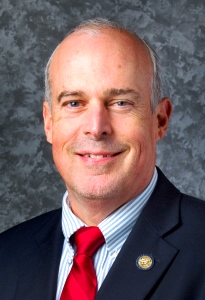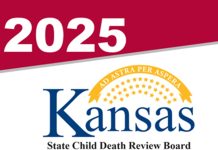Good afternoon everyone:
Sorry we’re late. A lot to pack into this week’s Sunday Reader.
We’ve been recovering after a frenetic campaign season. But we press forward nonetheless as we watch Laura Kelly’s transition into the governor’s office and get ready for a legislative session with a Democrat in the executive branch.
Let’s look at some news — election and otherwise — that flew under the radar during the last week.
Year of the woman: Part I
Gov.-elect Laura Kelly may or may not be part of a record class of women elected governor this year. She certainly will be part of a group that ties the record for the number of women serving as governor — nine in 2004, according to the Center for American Women and Politics.
On Tuesday, Kelly joined women winning governor’s races in eight other states, including Iowa, Maine, Michigan and New Mexico. If Stacey Abrams emerges as the winner in the Georgia governor’s race, she would set the record for women serving as a state’s chief executive.
Year of the woman: Part II
Not such a great year for women running for the Kansas Legislature. In races pitting women against men, women won only about a third of them, according to unofficial results with provisional ballots still to be counted.
So far, it appears women beat men in nine races, including Republican Barbara Wasinger over Democratic incumbent Eber Phelps, Republican Cheryl Helmer over Democratic state Rep. Ed Trimmer, and Republican Kellie Warren over Democrat Brian Clausen. Democratic women prevailing over men included Monica Murnan in House District 3 and Cindy Neighbor in District 18.
If all things stay the same, it looks like there will be 29 women in the Legislature, down from 31 in the last session. They will make up about 23 percent of the 125-member House.
Overall nationally, at least 2,073 women will hold state legislative seats, up more than 190 seats from the 2018 session, the National Conference of State Legislatures reports.
The nationwide share of female legislators will be around 28 percent, about 3 percentage points higher than in 2018.
Did Kobach ever have a chance?
As many problems as beset Republican Kris Kobach’s campaign for governor, the question is still being asked: Was he ever really in the game against Laura Kelly?
Last week, Kobach consultant JD Johannes shared internal campaign data suggesting that Kobach always had an uphill battle, regardless of public polling that showed the race to be tight and never outside the margin of error.

Johannes once worked for former Gov. Sam Brownback and former Attorney General Phill Kline.
He runs his own Topeka firm, which has done work for Republican U.S. Rep. Steve Russell of Oklahoma and Americas PAC, a super political action committee that works for conservative causes.
Johannes said the problems facing Kobach — campaign organization notwithstanding — were evident shortly after joining the campaign in late summer.
In an interview with the Sunflower State Journal, Johannes shared modeling that showed Kobach was underperforming President Donald Trump in Kansas — a sign of problems ahead.
The data revealed that Kobach received support from about 68 percent of hard-core conservatives who backed Trump.
But 80 percent of those same conservative voters rated Trump as good or excellent, meaning Kobach was coming up short with supporters of the president who came to Kansas to campaign for him leading up to the general election.
“These people are Republicans, they’re conservative, they don’t disagree with Kris much on the policy issues — they line up well with him — but it was Kris that they weren’t willing to go in for in the position of governor,” Johannes said.
By comparison, Kelly was drawing support from 80 percent of the Democratic Party’s liberal base. Even more noteworthy, Kelly was getting 15 percent from very conservative voters who gave Trump good marks, the internal data showed.
At the end of the day, voters – even the Trump supporters – just didn’t see Kobach as governor.
The governor is more than just the chief executive, Johannes said. The office is a symbol for how Kansans see themselves and how they want to be represented.
“In this case, you had a big chunk of people — a lot of them Republicans — who thought Kris Kobach did not match up with their self identity and conceptions of the state of Kansas,” Johannes said. “That was built up over the years.”
“Everyone knows Kris Kobach is a man of deep conviction,” Johannes said. “He’s willing to say things and do things that he thinks need to be done. That doesn’t always translate into what voters want as their governor of the state of Kansas.”
Leadership campaign news
Republican State Rep. Les Mason of McPherson is campaigning for assistant majority leader.

In a letter sent to lawmakers, Mason said he hopes to use the position to keep the Republican majority in the House by helping freshman legislators succeed and get re-elected in two years.
He said he has created a six-part series of presentations to help guide GOP freshman legislators.
Mason, who is entering his third full term in the House, said topics for incoming lawmakers include effective constituent contact, strategic voting as well as applying data and statistics to making policy decisions.
Democrats review 2nd District loss
While everyone looks at why Republican Kris Kobach lost the governor’s race, the Lawrence Journal World’s Peter Hancock steps backs and examines why Paul Davis lost his congressional bid to embattled Republican Steve Watkins.
A curious observation in the story is that Davis, who won the district when he ran for governor in 2014, didn’t enjoy the same resources as Democrat Sharice Davids did in her upset of Republican Kevin Yoder in the 3rd District.
Medicaid momentum
The results of the midterm elections last week are expected to give momentum to Medicaid expansion. The Hill newspaper looks at the national trend and what that might mean for Kansas with the election of Democrat Laura Kelly as governor.
LGBT candidates make history in Kansas, nationally
It was big week for LGBT candidates, with Democrat Sharice Davids beating Republican Kevin Yoder in the 3rd Congressional District and Brandon Woodard and Susan Ruiz getting elected to the Kansas Legislature. Here are two stories that look at the success of LGBT candidates nationally, one from The Associated Press and the other from NPR.
Political news grab bag
Lots of assorted political news that might catch your interest. This piece from RealClear Politics looks at voting trends among young adults, who are believed to have turned out in historic numbers during the midterm election. Meanwhile, The Economist, USA Today, RealClear Politics and Fox News look at governor’s races, where the Democrats picked up seats across the country, including here in Kansas.
A sedate secretary of state
Republican Scott Schwab is promising a quieter secretary of state’s office as he replaces the outgoing Kris Kobach. “Quieter. Down the middle,” is how Schwab explained it to the Topeka Capital-Journal last week. Here’s the piece from the C-J’s Tim Carpenter looking at the styles that the statewide candidates will bring to statewide office.
Abortion lawsuit brought
Kansas has been no stranger to abortion lawsuits in recent years as the state passed tighter restrictions on the procedure that were signed into law under former Gov. Sam Brownback.
A new lawsuit filed last week challenges a section in a new law that bans abortions administered through telemedicine, including medical abortion. The bill, signed into law last May, is scheduled to start Jan. 1.
Medical abortions, also known as the abortion pill, are used during the first 10 weeks of pregnancy. They’re used in about 60 percent of all abortions in Kansas.
The lawsuit was brought by the Center for Reproductive Rights on behalf of the abortion provider, Trust Women Wichita.
The lawsuit was brought in state court, where abortion rights supporters might have a better chance of winning.
The center pointed out that the Iowa Supreme Court struck down a similar ban in that state in 2015 because it found the restriction to be an undue burden on a woman’s right to an abortion.
Trust Women said it was only able to provide abortions two days a week before the clinic introduced telemedicine. It can now offer medical abortions on additional weekdays and on Saturdays.
The center pointed out that the state’s telemedicine law has a nonseverability clause that applies to the abortion provision only, meaning if “the abortion provision is determined to be unconstitutional or invalid, the entire telemedicine act falls.”
Faked out
A curious little story that cropped up after last week’s election focused on a tweet that appeared to be from former Gov. Sam Brownback saying that Kansas had just elected “Godless liberal extremists” on Election Day. Not so much.
The U.S. State Department, where Brownback now works as ambassador for religious freedom, said the account was a fake. The account was later suspended. Here’s the Capital-Journal’s account from Tim Carpenter.
Prisoner voting rights
A woman held at the Leavenworth Detention Center has gone to federal court, saying she was denied her right to vote in the 2016 general election.
The woman, Brenda Wood, argued in her lawsuit filed last week that she was awaiting trial at the time of the election and was still an eligible voter.
The lawsuit seeks class-action status, arguing there are hundreds of prisoners held there who have not yet been convicted and should be eligible to vote.
New state school board member talk priorities
Jean Clifford, the newly elected member to the state Board of Education from Garden City, discusses her priorities with the Garden City Telegram. Among other things, Clifford said the state needs to emphasize professional development and teacher pay.













